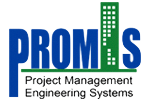| Course Information | ||
|---|---|---|
| 1 | Venue | Dubai, U.A.E. |
| 2 | Date | 06 -10 Sep 2020 |
| 3 | Download PDF | |
4 | Registration Fees | |
5 | Register | Online 800 PROMIS |
6 | Presenter |
INTRODUCTION
Concrete is used throughout the world for a wide range of applications. In order to improve the concrete durability, recent advances in material science introduce new materials or admixtures to be added to or replace conventional concrete materials. Such materials could be used in new concrete construction and/or in repairing new or existing structures. These materials could cause more harm than benefit or at least be ineffective if not properly used. This five-day course will introduce newly developed concrete materials as well as the method of design and construction to deliver a building free from repair in future. The course will also cover test methods and technical specifications for such materials as well as troubleshooting for their most common problems. At the end of this course, participants will know the necessary information about the different advanced concrete materials, what tests should be performed and how to interpret their results, what to look for in specifications and define the advantage and disadvantages for each new material. So, this course presents for all people who are working on the area of design and construction to know the main steps in design that can produce a building free of faults and repair. The construction activities precaution that should be follow to avoid any fault and to produce a durable concrete structure.
WHO SHOULD ATTEND
This seminar is designed for people in construction, industry and government who are involved in building structure with free repair.
PROGRAM
Day One
Overview for conventional concrete materials
- Conventional Concrete Materials Limitations and Problems
- Concrete quality control
- Transport of fluids in concrete
- Water permeability of concrete
- Carbonation affect durability
- Acid attack
- Sulfate attack
- Effects of sea water on concrete
Day Two
- High Strength Concrete: General
- Importance and Economy
- Durability Improvement
- Structural Improvement
- High Strength Concrete: Materials
- Slag (GGBS), Fly Ash, and Silica fume
- High Strength Concrete: Production
- Batching and Mixing High Strength Concrete
- Placing and Compacting High Strength Concrete
- Corrosion phenomena in steel bars
- Chloride cause corrosion
- Carbonation process
Day Three
- Specifications and Design codes requirements.
- Maximum allowance of chloride content
- Specifications of concrete cover
- Maximum allowance of crack width
- Design requirements in case of carbonation
- Design requirements in case of chloride
- Tips of concrete design for durable concrete
Day Four
- Different Methods to Protect Structure from Corrosion.
- Coated the steel bars by epoxy
- The Limitation of using epoxy coating
- Problems with epoxy coating
- Using Galvanized bars
- Corrosion Inhibitor.
- Sealers and membranes
- Cathodic protection technique
Day Five
- Construction precaution procedure
- Concrete process in hot climate
- Execution tolerance allowable for different codes
- Different curing techniques.
- Pump concrete precaution.
- Concrete, steel and wood form precaution
- Main construction process tips




